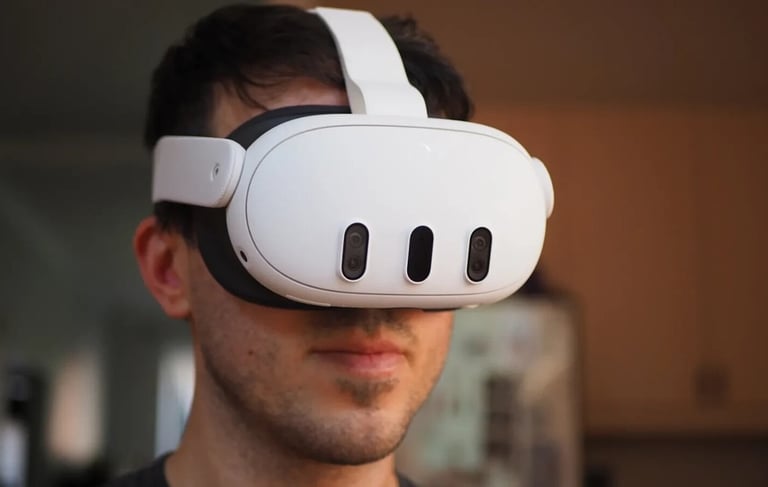Cairya - Humanizing Generative AI
The Problem
After years in healthcare, I noticed a recurring pattern: mental health apps weren’t sticking. Despite rising rates of anxiety and loneliness, engagement rarely exceeded 5%. These apps were generic, transactional, and failed to build a sense of trust or connection. I began to ask: What if generative AI could humanize the experience and actually bond with the user?
Industry engagement ~5%
Apps lacked empathy & personalization
Rising unmet need for mental health support


The Vision
My vision for Cairya was to create an ally, not an app. Instead of delivering static chatbot-like advice, we imagined an AI that remembered you, adapted to your style, and expressed empathy through voice, body language, and facial expressions. The hypothesis was simple: if users could see and feel an AI guide as human-like, engagement would dramatically increase.
Virtual Reality MVP in 12 weeks
4-week student and US Army vet concept testing
V1 Solution Specs


The Solution
We developed a multi-modal platform combining VR, AR, and mobile. At its core were three breakthrough innovations: dynamic prompting, a multidimensional memory model, and humanized avatars. Together, these created a deeply personal coaching experience - no two sessions were ever the same, and the AI adapted continuously to the individual.
Dynamic Prompting: Unique prompts for each user/session
Memory Model: Prioritized knowledge, style adaptation, continuity
Humanized VR Avatars: Voice, body, facial expressions → empathy
Mobile Companion App: Portable access and daily touchpoints

My Role
As founder, I wore multiple hats: vision, design, AI technology, and product lead. With no CTO or AI expert, I dove deep into generative AI myself, mastering prompt engineering, RAG methods, voice APIs, and system design. I collaborated with Stevens Institute of Technology and Mental Health professionals to validate and supplement the solution. I translated these learnings into clear specifications for our developers, who helped me deliver an MVP in just 12 weeks.
Defined product vision & strategy
Designed UX and AI interaction model
Learned and applied AI tech hands-on
Collaborated with a University and Mental Health specialists
Coordinated offshore devs, drove delivery
Secured angel funding + first customer


Impact & Validation
The results exceeded expectations. In user tests, 90% of participants engaged semi-daily, nearly 20× higher than industry averages. Many users began referring to their AI guides by name, a clear sign of emotional connection. Investors validated the concept, and we secured both funding and our first customer. Cairya wasn’t just another app - it was proof that AI could feel human. By combining generative AI, memory, and immersive design, we created a new category of empathetic AI for mental health and loneliness. For users, it wasn’t about “using AI” - it was about feeling less alone.
Developed positioning on Human and AI interaction
90% adherence vs. 5% benchmark
2× engagement, +15% retention
Users humanized avatars, calling them by first names
Angel investment + first enterprise customer
Challenge & Pivot
We faced skepticism from Healthcare providers and organizations; many feared AI “replacing” mental health professionals. We pivoted, positioning Cairya not as a therapist but as part of the care team, providing continuity and insights between sessions, while keeping the user 'afloat'. This reframing opened the door for adoption while keeping patients supported.
As I was testing the solution across other sectors, I observed how universal it could be with a more flexible setup and configuration. This insight led me to pivot away from a single vertical into a broader platform approach, empowering organizations across industries to deploy personalized and humanized AI coaches. With Cairya, organizations can easily configure and integrate their own content, creating unique AI-powered coaching experiences tailored to their specific needs, while avoiding the expense of in-house solution development.